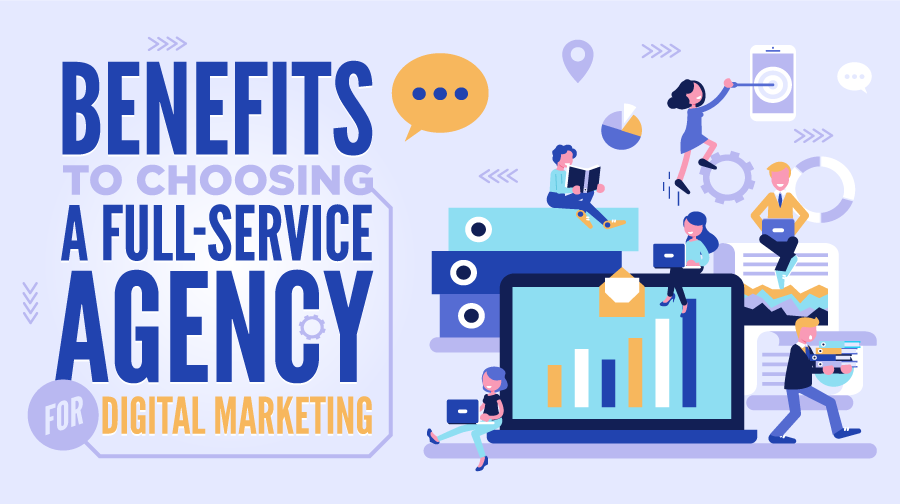Ultimate Guide to Full-Service Digital Agencies for Resellers
A full-service digital agency for resellers is a company that provides a wide range of marketing and web-related services under one roof—such as SEO, social media management, web development, branding, PPC advertising, and content creation—specifically packaged so that resellers (typically smaller agencies or freelancers) can offer these services to their own clients.
In essence, a reseller acts as a middle layer between the client and the full-service agency. The reseller can rebrand these services as their own, offer end-to-end solutions to clients, and manage projects without hiring an in-house team for every function.

This model exists to support smaller firms, consultants, or non-digital businesses looking to expand their offerings quickly and cost-effectively.
Why Full-Service Digital Agencies for Resellers Matter
Today’s businesses demand integrated digital strategies that span across multiple platforms—social media, search engines, eCommerce, and more. However, not every agency or freelancer has the resources, team, or infrastructure to provide a full scope of services.
Here's why the reseller model has gained traction:
Scalability: Resellers can grow their business offerings without increasing overheads.
Expertise Access: Smaller agencies gain access to specialized talent they may not afford in-house.
Time Efficiency: Projects are completed faster when managed by experienced full-service teams.
Revenue Streams: Agencies and consultants can earn more by offering packaged services.
Risk Reduction: Lower operational risk since there’s no need for direct hiring or large capital investment.
Industries such as local marketing, SaaS, health & wellness, law firms, and eCommerce are increasingly turning to resellers and white-label agencies for efficient digital transformation.
Trends and Recent Developments
The full-service digital agency reseller space has seen key shifts over the past year:
| Trend | Details |
|---|---|
| AI Integration | Tools like ChatGPT, Jasper, and Midjourney are now embedded in content creation, customer service, and design workflows. Resellers are expected to offer AI-enhanced services. |
| Vertical Specialization | Agencies are focusing on niche markets like dental clinics, real estate, or fintech to provide tailored solutions. |
| Automation Platforms | Platforms like GoHighLevel and Vendasta have streamlined CRM, lead capture, and task automation for resellers. |
| Increased Demand Post-COVID | SMBs digitizing operations are relying more on reseller agencies for quick entry into online marketing. |
| Remote-First Workflows | Teams across time zones using collaborative tools like Trello, Slack, and Figma ensure seamless delivery to clients, even under reseller brands. |
In 2025, there’s a stronger push for transparency, structured reporting, and measurable ROI in digital campaigns, affecting how reseller agencies must position their offerings.
Legal Considerations and Policy Impacts
While most countries don’t regulate digital reselling explicitly, there are some legal and policy implications to consider:
1. Client Confidentiality and NDA Requirements
Resellers often operate under white-label models. To protect both parties:
Use Non-Disclosure Agreements (NDAs)
Clearly define client-ownership clauses
Avoid direct contact between fulfillment team and end-client unless permitted
2. GDPR and Data Privacy Compliance
In regions like the EU (General Data Protection Regulation) and California (CCPA), agencies must:
Ensure data collected on behalf of clients is stored and processed securely
Disclose data collection policies
Offer opt-out options for end-users
3. Advertising Guidelines
If running paid ad campaigns (Google Ads, Facebook Ads), agencies must comply with:
Google’s Ad Policies (no misleading, unsupported claims)
Facebook’s restricted ad content rules (especially for finance, health, and politics)
Local marketing regulations for financial disclosures, especially in regulated industries
4. Tax and Resale Certification
In the U.S. and similar jurisdictions, resellers may need to obtain a resale certificate for tax-exempt purchases of services they resell.
Helpful Tools and Resources for Resellers
Below is a curated list of resources and platforms useful for resellers partnering with full-service agencies:
White-Label Platforms
Vendasta – All-in-one platform with CRM, marketing automation, SEO, and design services.
GoHighLevel – Lead capture, email automation, SMS marketing, and funnel builder in one.
DashClicks – SEO, social media, ads, and reputation services with real-time dashboards.
Project Management
Trello – Visual boards for task tracking.
ClickUp – Comprehensive project and client management.
Asana – Task assignments and timelines.
Reporting & Analytics
AgencyAnalytics – White-label client dashboards for SEO, PPC, and social data.
Google Looker Studio – Create custom branded reports from various data sources.
Templates and Legal Tools
Docracy – Free NDAs, contracts, and SOW templates.
Pandadoc – E-signatures and proposals.
Bonsai – Freelancer/agency contracts and invoicing.
Learning & Community
HubSpot Academy – Free certifications in inbound marketing and sales.
Reddit r/agency – Peer advice from agency owners and resellers.
DigitalMarketer.com – Strategy playbooks and frameworks.
Frequently Asked Questions (FAQs)
Q1: How does a reseller benefit from using a full-service digital agency?
Resellers get access to expert services they can rebrand and offer under their own name, expanding their service portfolio without hiring or managing a large team.
Q2: Is white-label digital marketing legal?
Yes, it's legal. However, transparency with clients and adherence to data privacy laws like GDPR and CCPA are essential to avoid legal issues.
Q3: What services can typically be resold?
Common services include SEO, PPC management, website development, social media marketing, graphic design, email marketing, and content writing.
Q4: What are the risks of reselling digital agency services?
Risks include dependency on the partner agency’s quality and deadlines, potential loss of client trust if service falters, and limited control over project execution.
Q5: Can resellers set their own pricing?
Yes. Resellers typically purchase services at a wholesale rate and set retail pricing based on their market strategy and value offering.
Final Thoughts
As businesses increasingly rely on digital strategies, the reseller model offers a viable way to scale offerings quickly. Partnering with a full-service digital agency allows smaller players to stay competitive without compromising quality. While the model brings many advantages, success depends on choosing the right agency partner, setting clear expectations, maintaining legal compliance, and continuously delivering value to clients.
This guide aims to equip resellers with the clarity and tools needed to navigate the full-service digital agency landscape effectively in 2025 and beyond.